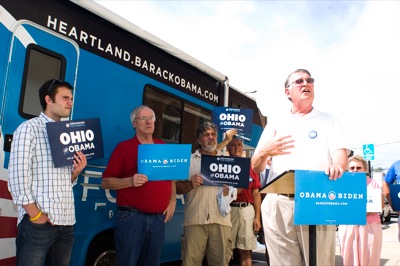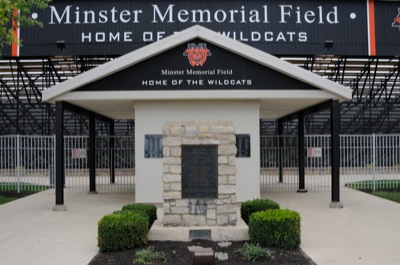Thursday, September 6th, 2012
New law costly for patients' companies
Healthcare
By Amy Kronenberger
ST. MARYS - President Obama's healthcare reform bill doesn't actually reform healthcare, a Dayton-region healthcare official told local Rotarians at a meeting Wednesday.
Bryan Bucklew, president and CEO of the Greater Dayton Area Hospital Association, which includes the Grand Lake Health System based out of St. Marys, said the bill may offer additional coverage to Americans, but it won't fix the problems.
"If we have a dysfunctional system, covering more people won't make the dysfunctional system better," he said. "That's what we keep reiterating to elected officials - universal coverage and healthcare reform are not the same thing."
The reform bill requires no exclusion for pre-existing conditions, 50 percent off prescription costs over $2,700 for seniors, no lifetime caps on insurance benefits, no dropping an individual if he or she gets sick, no copays for preventative and wellness care and much more.
"These things seem really good, but none of it's really free," he said. "Someone has to pick up the tab."
Insurance companies and hospitals will continue to pass the cost on to their customers by increasing their rates, the Springfield man said. At the same time, healthcare needs are increasing as overall community health decreases.
Elected officials still don't know the best way to get Americans to take responsibility for their own lives and live healthier lifestyles, he said.
"Americans have gotten used to a system that gives surgery or a pill to take care of a problem then they go home and keep living the way they always did," Bucklew said.
In another aspect of healthcare, Bucklew said the biggest misnomer is its participation in the free market. Of all the patients in the region's 21 hospitals, 75 percent are on Medicare or Medicaid.
"When three-fourths of patients are on a government program, you can't compare," he said. "Insurance companies can't compete."
Fixing the healthcare system is a large, complicated issue, Bucklew said, adding he doesn't have the answers to its problems. However, he continues to work with elected officials, teaching them the costs and issues at hand.
"One of my biggest challenges is to educate elected officials on healthcare," he said. "It's difficult for healthcare officials to understand the system and even more difficult for elected officials."
Bucklew told Rotarians to expect higher costs due to mandates on coverage, limited access to care and uncertainty. He believes the bill will not be repealed completely but changes may be made as elected officials begin to realize the scope and cost of the system.
Despite the coming challenges, Bucklew said the Greater Dayton Area Hospital Association is focused on bringing the best healthcare to the area. Officials from other hospital regions have studied the association to learn how area hospitals work so well together and succeed, he said.
The association's hospitals, which include those in Auglaize, Shelby and Darke counties, are ranked No. 1 in the state and No. 3 in the nation in emergency room healthcare quality, he said. They also achieved the highest scores in overall quality according to the Hospital Quality Index.
"And that's something to be proud of," Bucklew said.





